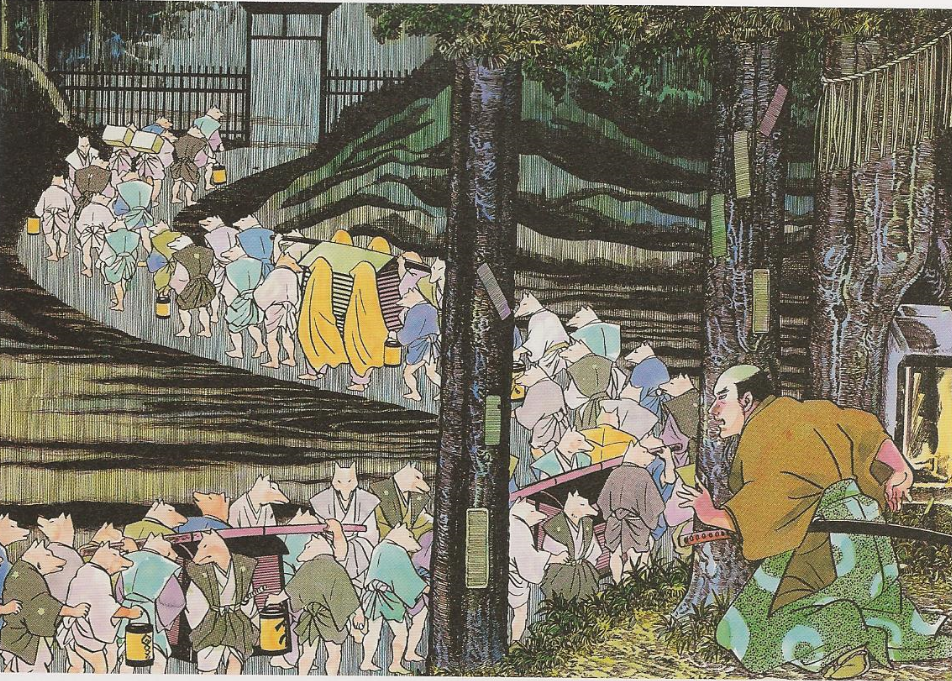What Do the Majority of Hetero Married Women in Your Country or Culture Do?
I keep finding interesting articles and mentions here and there about how other countries and cultures handle surnames post marriage. The New York Times survey article sum-up quoted one woman as stating that most women in China don't change their names upon marriage. The NYT dedicated an entire article to that subject here: For Chinese Women, a Surname is Her Name. The article states:
But in China, as in other Asian societies shaped by Confucian values, including Korea and Vietnam, women traditionally retain their surname at marriage. This is an expression not of marital equality, Chinese feminists are quick to note, but of powerful patriarchal values. A married woman continues to be identified by her father’s lineage.
Chinese folk art painting of a wedding
The article noted that as a result, women were often left out of genealogical records. But in 1930, China gave women the legal right to take her husband's name at marriage in the new Civil Code.
In contrast, in Japan, all married couples are legally required to use one surname. 96 percent of women assume their husbands' name. Another NYT article (really, New York Times, way to go on the top notch name change coverage lately!)--In Japan, More Women Fight to Use Their Own Surnames--discusses the December 2015 decision by the Japanese Supreme Court that held that the law did not violate the Constitution or place an undue burden on women.
I'm working to create a Google Sheets file tracking all the laws and traditions of various countries and cultures just so I can start to get a handle on it all. It's accessible here if you'd like to look at it or contribute!
Kitsune no Yomeiri – The Fox Wedding (Learn more about the story behind this painting here - https://hyakumonogatari.com/2013/07/19/kitsune-no-yomeiri-the-fox-wedding/)



